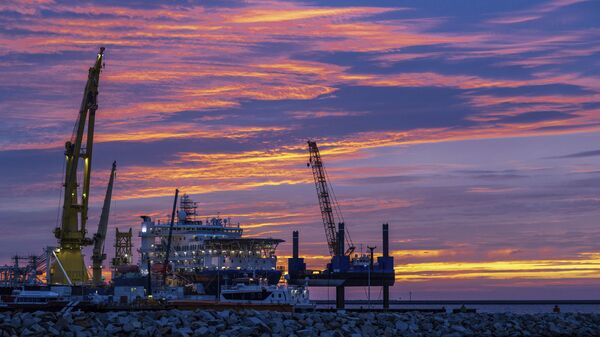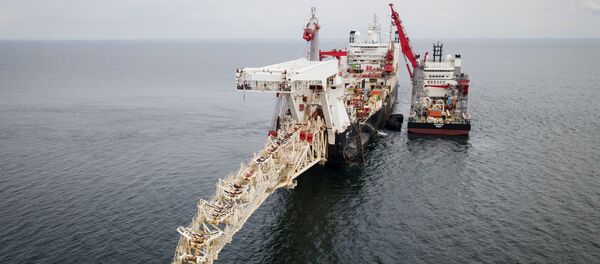The parliament of the German state of Mecklenburg-Vorpommern has voted in favour of an initiative proposed by the regional government to establish a special environmental foundation which will help to protect the interests of the participants of the Nord Stream 2 pipeline project from US sanctions.
In minutes of an emergency session of parliament published Thursday, the parliament's press office confirmed that the "proposal has been adopted".
The regional government moved to establish the state-owned MV Climate Protection Foundation on Wednesday, with its aims including the completion of Nord Stream 2, as well as support for science and research into climate and environmental protection issues.
Nord Stream 2 AG is listed as a partner of the foundation, and is expected to contribute up to 60 million euros ($73.6 million) toward its operation, according to media reports. On Wednesday, Christian Pegel, Mecklenburg-Vorpommern's minister for energy, said that the gas infrastructure will serve to assist Germany in its effort to phase out nuclear and coal power, and provide the state with the ability to use highly flexible gas-powered plants which can power the region when alternative energy resources aren't available.
Mecklenburg-Vorpommern is the state where the Nord Stream 2 pipeline originating in Russia makes landfall in Germany.
Need for Counter-sanctions Protections at National Level
Later Thursday, Die Linke lawmaker Klaus Ernst, Bundestag chairman of the Committee for Economic Affairs and Energy, told Sputnik that he supports Mecklenburg-Vorpommern's decision to set up the foundation, and suggested the idea could be expanded to the national and European Union level.
"With this fund we should ensure that the sanctions against Nord Stream 2 go nowhere. In this regard, I welcome the work of the Mecklenburg-Vorpommern government," Ernst said. "Notwithstanding [the creation of this fund], Germany and the EU still need to agree on measures by which they can protect themselves in the future from states looking to protect their economic interests with the help of sanctions, which are contrary to international law," the senior lawmaker added.
On Wednesday, a German government spokesman confirmed that Berlin was aware of Mecklenburg-Vorpommern authorities' initiative, but said Nord Stream 2's status as an economic project means "there is no reason for us to take part in the present discussion". Berlin stressed that its position on Nord Stream 2 remains unchanged, as is its negative view of extraterritorial changes directed against German and European companies.
The United States first slapped sanctions on Nord Stream 2 in December 2019, prompting a Swiss contractor to pull out of the project, leaving the 1,230 km mega-pipeline around 165 km short of completion. In December 2020, Washington expanded sanctions, targeting companies providing insurance and certification services for the project.
Work to finish the pipeline resumed in December 2020, and it is expected to be completed later this year.



